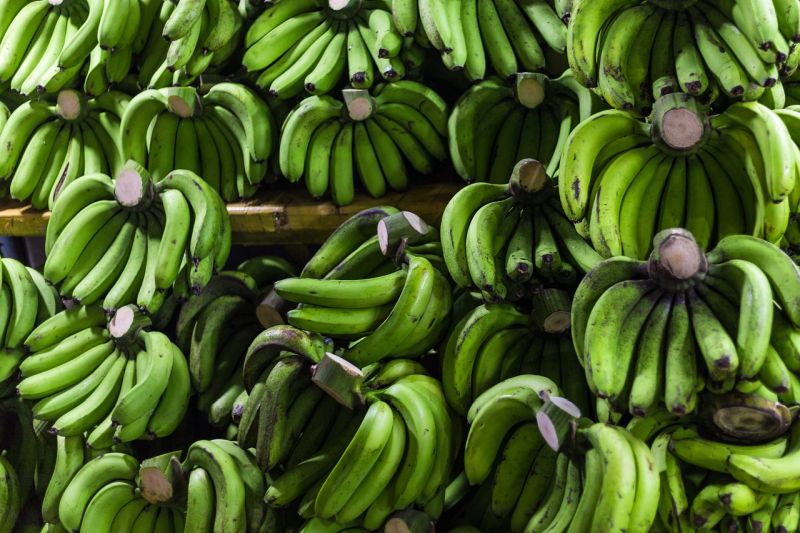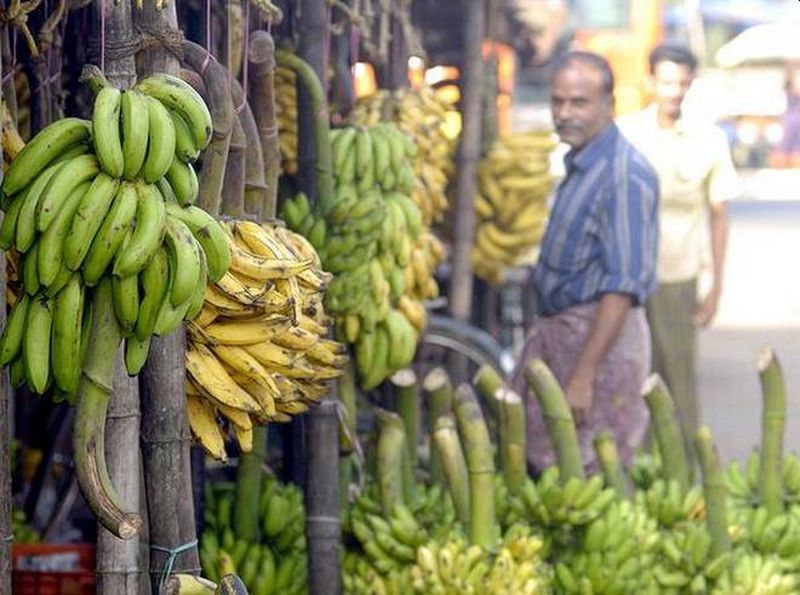Climate Change can Reduce Banana Yields in Largest Producer Countries
Rising temperature and decline in rainfall during the past few years have shown variations in several crop yields. Be it vegetables, grains or fruits, there has been a significant shift in the production due to global warming. While researchers have studied the impact of global warming on various crop productions, the effects of changing climate were rarely studied or understood on one of the most nutritious fruit crop – bananas.
Bananas are known as one of the most important fruit crops as it suffices the need for food, provides nutrition and income to numerous people both in rural and urban areas across the world.
Recently, a new study led by Dr. Dan Bebber from the University of Exeter revealed the recent and future impact of climate change on the world’s leading banana producers and exporters. While the study shows that the increase in temperature has benefited the fruit crop yield in past six decades, the continuous rise in temperature can decrease the production or even entirely wipe out the fruit off of the earth’s face.

Image: Labroots
The report suggests that 27 countries, which are responsible for 86 percent of world’s total banana production, have seen a significant rise in the crop yield since 1961 owing to the changing climate that provided more favorable growing conditions for the fruit.
However, the study also indicates that if climate change continues at its expected rate, these gains could be heavily reduced or disappear completely by the year 2050.
Ten countries are predicted to witness a significant decline in the crop yields, including the world’s largest producer and consumer of banana, India and the fourth-largest producer, Brazil. Though the study does point that some countries – including Ecuador (the largest exporter) and Honduras, along with many African countries – may see an inclusive benefit in crop yields.
Produced throughout the tropics and subtropics, the fruit is a key crop for millions of people across the world. Britain imports more than five billion bananas each year and the UK contributes to the seven percent of the global export market.
According to the studies, bananas and their derived products constitute the second-largest agricultural export goods of Ecuador and Costa Rica. Such international trades can change the local and national economies in banana producing countries.
In light of the facts revealed by this new study, it is crucial to predict the potential impacts of climate change on banana production and take necessary measures to ensure the long-term survival of the fruit crop.

Image: K.K. Mutafah / The Hindu
The study indicates that by 2050, any positive effects of changing the climate on the average global banana yields will significantly decline. Ten countries are expected to show a negative trend, if not a strong diminish in yields. These include some of the largest producers like India, Brazil, Colombia, Costa Rica, Guatemala, Panama and the Philippines.
Bananas are not the only crop affected by continuous climate change. Other crops such as corn, coffee, chocolate, maple syrup, cherries, beans, and wine grapes have been adversely affected by the rising temperature and reducing rainfall. Chances are that in a few years these crops will be highly-priced as their yields have shown a decline due to the climate change.
The global society needs to pay heed to the matter or else there might come a time when consumers will have to cut back on or abandon some foods entirely. The food production systems also need to be prepared in order to adapt to the changing climate.
Via: The Hindu


